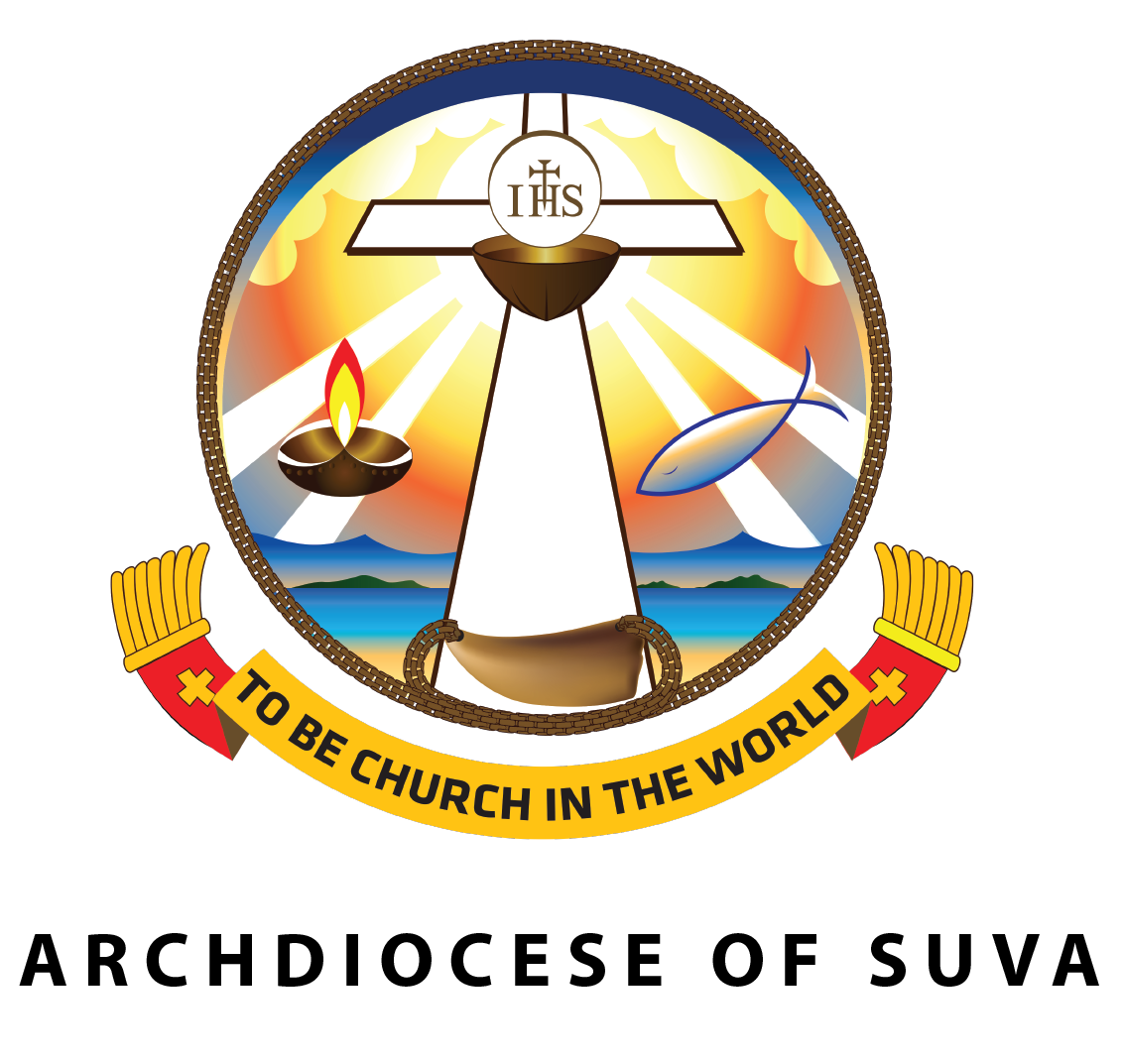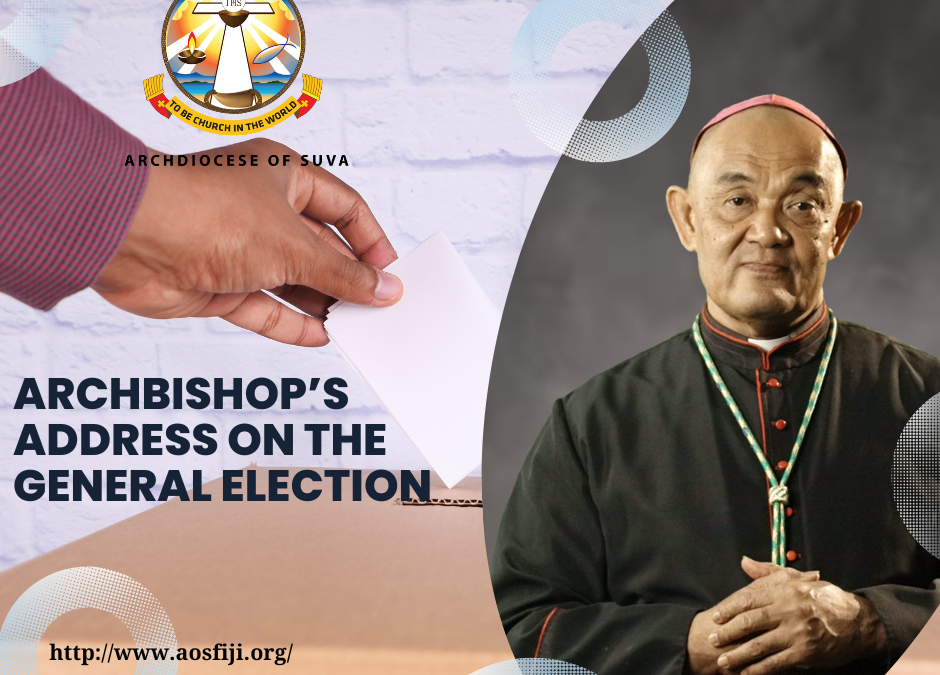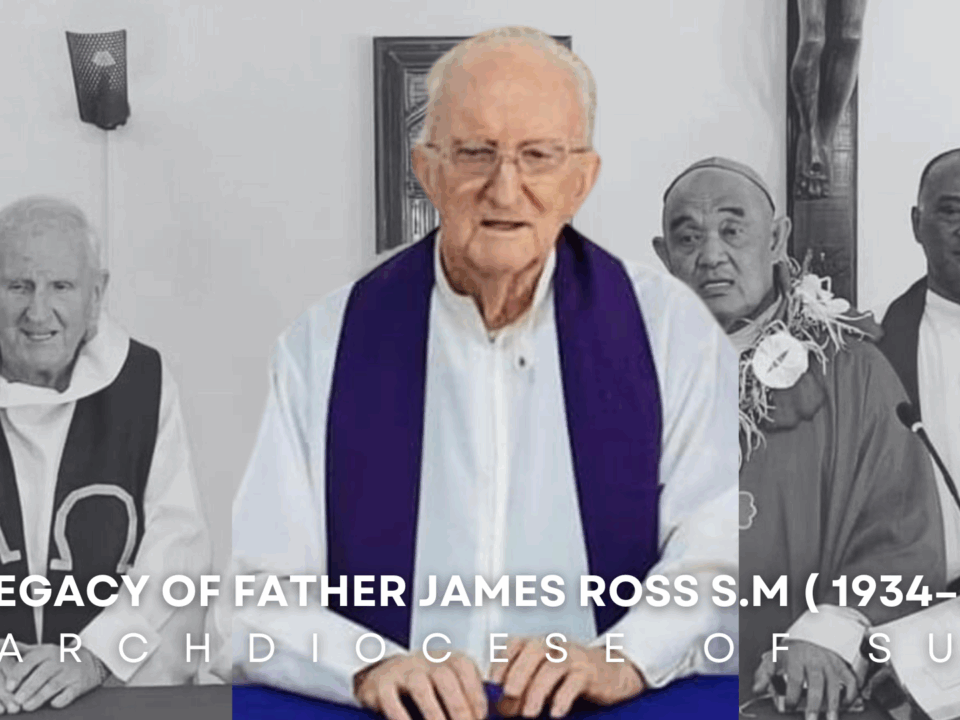ARCHBISHOP’S ADDRESS ON THE GENERAL ELECTION
As a pastor-shepherd I wish to offer some guidance as you carry out your duty and responsibility in voting in the coming general.
“Casting our votes is not only a privilege but also a solemn duty and responsibility.” Voting is an act of love.
There are four themes that I consider important for our country’s development. They are, the form of power (politics), the economic system, foundations of our society (marriage and family), and care for creation.
Each of the coming days I will discuss each theme separately so that you have time and space to reflect on the kind of government and leader you must vote for.
1. The Form of Power
My doctoral thesis was entitled “Towards a Catholic Response to Fiji’s Coup Culture. My research on Fiji politics showed that patron-client politics has been the dominant form of power in Fijian history.
What is patron-client politics? It is politics whereby those in power use the government’s resources, money, and jobs to gain the political support. The leader surrounds himself with followers who constantly reaffirm their faith in his exceptional wisdom and generosity. All or the bulk of strategic positions in the political bureaucratic, police and military hierarchies are filled with personally loyal individuals. These include relatives especially close ones, such as brothers, sons, daughters, cousins, friends and classmates, kinsmen and tribesmen.
Patron-client politics is based on a two-way relationship between those in power (patron) and persons of a lower status (client). The patron says, ‘I give you a job and money, you support me. In Itaukei slogan, I call this the ‘kilavata politics.’
Patron-client politics has been the dominant form of power from the colonial days to the present. Those in power patronised various parts of community, provinces, chiefs, villages, churches, military, and police.
What’s the problem with patron-client politics?
It is based on an intimate relationship between the patron and client and it often forgets national development.
It is vulnerable to corruption. (kilavata, backdoor, bribery, classmates, church, family)
It breeds the culture of silence.
It creates division.
Patron-client politics hinders democracy, just society, and good governance and we can argue that this is the reason why we have political instability and coups. We must therefore move away for patron client politics to a politics that serves the all peoples and care for the environment.
Whatever party wins this election must move away from the patron-client politics or else change will never come.
The Catholic Social Teaching teaches the principle of subsidiarity as the guide for good governance and political leadership.
The Catholic Social Teachings teaches that ‘No higher level of organisation (such as government) should perform any function that can best be handled at a lower level (such as families and local communities) by those who are closer to the issues or problems.’ This means that a good government empowers local communities to address their problems, design development, and participate in decision making. The government only intervein when local communities lack the resources.
Needless and unnecessary centralisation causes over-reliance on large-scale government. Overly intrusive government reduces incentives for beneficial self help.
“He governs best who governs least.” Good governance must avoid the ‘hand-out mentality and free bees.’
The wisdom of subsidiarity is: “as small as possible, but big when necessary.” Subsidiarity means that government should not be taking over what local people can do themselves. The government should not be like a ‘mother hen’ with all her baby chickens under her wings.
Government must avoid ‘the nanny state’; an overly controlling and centralised form of power where there is not respect for the authority of local institutions, villages, families, school committees, and faith based organisations.




